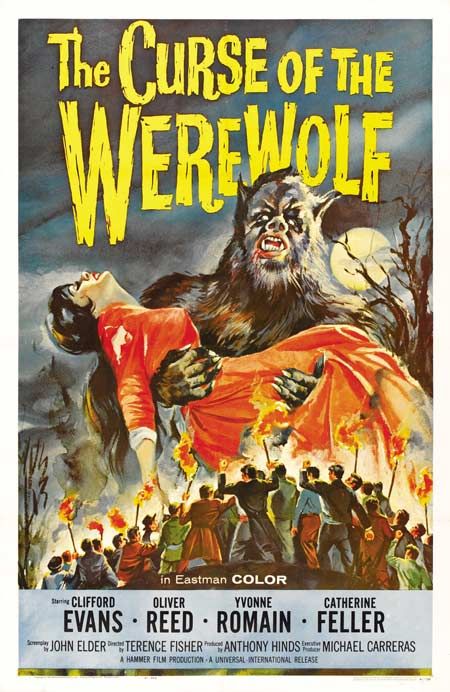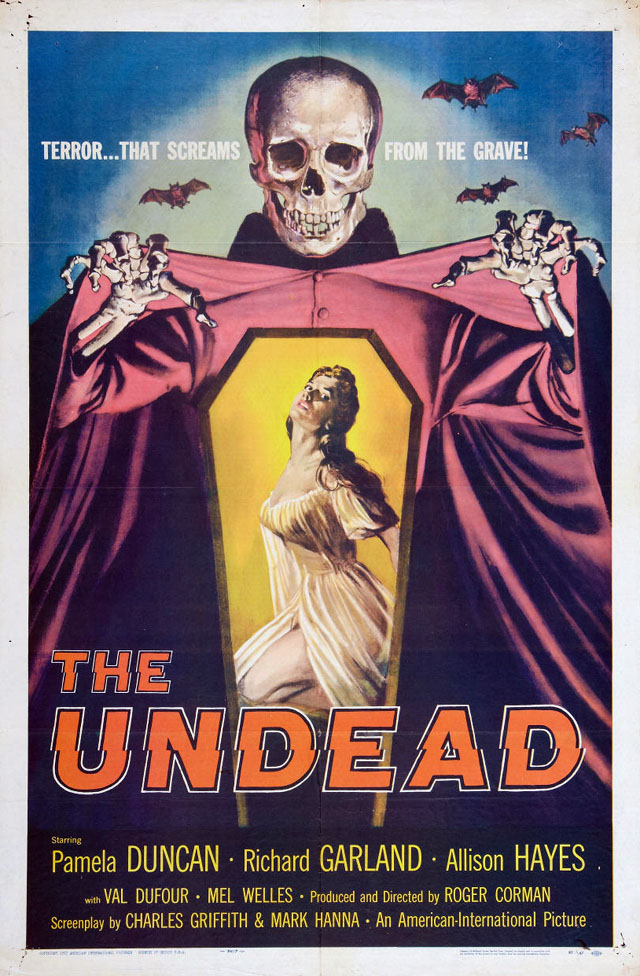One of the oldest and most striking genres to come out of the literature and media worlds, horror exports have gripped and shaken audiences of all ages for as long as they’ve been around. From Psycho to Saw, there’s a certain unforgettable trait that runs through the horror genre and its chief antagonists that leave marks and imprints on their viewers that remain for years. No one ever forgets their favourite scary movie after all…
We spoke to Geoffrey Calhoun and Ryan LaPlant from wefixyourscript.com for the very best insight into the most infamous genre of fiction in human history. Looking at the appeal of horror, its impact on society, its adaptation and ability to survive and finally its future, no stone has been left unturned.
Navigate the article
#1 Everlasting Appeal
The appeal of horror to a filmgoer is that feeling they get at the end of a film. Whether it be of shock, terror, sadness, or even joy. When the credits roll that feeling in your gut harkens all the way back to the ancient Greek tragedies. Aristotle spoke about the impact a play can have as an emotional catharsis or “cleansing” in the viewer. He believed this was an essential element of excellent writing and was ultimately one of the best gifts a story can give its audience. A good horror film is attempting to achieve the same goals.
This catharsis also plays into the physical effects that watching a horror film can have. There have been multiple studies that have shown watching a scary movie can reduce anxiety, make your immune system stronger, and even burn calories.
Contributor: Geoffrey Calhoun from wefixyourscript.com
#2 Reflections
Horror films also have a strong appeal internationally, which drives producer and studio interest. Comedic styles and cultural values shift drastically from country to country, but the visceral reaction to being chased by a killer with a knife is universal. It’s immediately relatable, and it taps into the core of our animal selves.I also think horror, much like comedy, is a genre where you can explore social and societal issues without becoming propaganda.
The best horror lives within deep-seated and hard to discuss problems. Get Out is about race relations in America. Hereditary is about the pervasive nature of mental illness and how deeply it can root itself in families. The entire Saw franchise is about how people no longer appreciate their lives. Horror is a safe space to tackle things that scare us because we get to face them and win or lose we get to fight them.
Contributor: Ryan LaPlante from wefixyourscript.com
#3 Adapting To The Times
Like any art form horror has grown and changed significantly as it has been expressed by different filmmakers over the past several decades. In many ways, horror can be seen as a reflection of society. For example, in the 50’s horror films were about giant cheesy monsters attacking the American family which is a reflection of the very real threat of nuclear war. Then later growing into the slashers of the late 70’s and 80’s it shifted into a singular personification of evil lurking behind every corner which reflected how violence in the streets had become more publicized at the time.
I also believe the recent prevalence of the “torture” subgenre can also be seen as a reaction to the lack of empathy in society as a result of a dependence to online social networking as well. In this genre, torture is carried out by strangers who are obsessed with the act itself and cannot connect or sympathize with their victims. Their victims are no longer human. They are just “things".
Contributor: Ryan LaPlante from wefixyourscript.com
-
My mind is blown.
#4 Continuing Foes
For me, the progression of horror has always been most visible in terms of villains. In the early days, there were the archetypes: the mad scientist, the monster, the devil. These were beings who were incontrovertibly evil, with no vestiges of humanity present. Then we shifted in the 60’s into an era of “good men gone wrong,” for example Norman Bates in Psycho who’s madness is explained at the end of the film. In the 70’s the villains shifted to faceless beings who were unstoppable and unexplainable: Michael Myers in Halloween or the creature in The Thing. The 80’s produced the first “fun” horror movies in the realm of Gremlins or the later Nightmare on Elm Street sequels. They were movies that introduced young audiences to horror and led to a much more educated horror fandom. The 90s became very self-referential, and Scream in many ways exemplified that era. The early to mid-2000’s introduced villains with heightened ideals that yielded horrifying results (i.e., Jigsaw) or corporate monsters that grew vicious because their desires were limitless (i.e., the torturers in the Hostel films). That merged in the early 2010’s into a trend consisting of re-booting old franchises, creating new based-on a-true-story films, or the current push for “elevated genre” films that explore societal issues.
The interesting thing from my perspective is that the villains are now any combination of those explored in the past. Our villains are multifarious, but our battlefields and the issues being explored in them are very specific to our times.
Contributor: Ryan LaPlante from wefixyourscript.com
#5 Cultivating Society
Genre fans are the best people. All you have to do is go to any horror film festival or convention, and you will see a comradery amongst strangers which is truly inspiring. They’ve created this amazing community that completely accepts you for who you are. No judgment. Whereas sports fans have a tribalistic aspect and have been known to take their rivalries a bit too far.
You won’t see Chucky fans in a brawl with Freddy fans. Instead, they celebrate one another. Horror, like any genre film, can be used as a filter for what the filmmaker is trying to say. It takes the taboo away from topics that most of us are uncomfortable to touch upon. A really good film does this and you never even realize it. In so doing that it exposes the audience to a different perspective and hopefully causes them to question their own beliefs, even if it’s only during the brief walk to your car as you exit the theater.
Contributor: Geoffrey Calhoun from wefixyourscript.com
#6 Translating The ‘Hack And Slash’
I’m happy to say from my experience that the horror fans I have met are universally lovely, kind people. None of the hack-and-slash on the screen seems to translate into the lives of the fans. I do however think horror triggers discussions that are, much like the fear they create, insidious, undeniable and not entirely supported in the mainstream.
I know Get Out caused widespread discussion of race in the media, but that is the biggest example and there are many more films that have had grass-roots effects: Hereditary led to discussions of mental illness, Hostel to greed and the dangers of unfettered wealth, The Conjuring, and its sequels led to conversations about the veracity of ghost hunters and the debatable value of the Warrens and their claims, even Jeepers Creepers 3 led to a meta-conversation within the horror community about who should be allowed to make films and the ethics of production. Horror isa mirror we hold up to ourselves, and the relationship we have with it is personal, subtle and shakes us at the core.
Contributor: Ryan LaPlante from wefixyourscript.com
#7 Pushing Through The Cliches
As Ryan had mentioned earlier about social issues being explored through horror, I’ve noticed those are becoming more and more popular. Just like in the 60’s with Night of the Living Dead which is a film about racism cleverly hidden behind a zombie flick. We now see films like Get Out and The Purge which are speaking about the exact same topics with a much larger platform. As far as the audience is concerned, they are getting smarter. People are becoming familiar with the tried and true tactics and clichés of the genre. This is forcing filmmakers to continually push the boundaries and tell more original stories in unique ways.
Contributor: Geoffrey Calhoun from wefixyourscript.com
#8 Incoming Vampire Resurgence
I think there has been a mislabeled push for “elevated genre” that claims some horror films are more artistically valid than others and I don’t believe that is true. However, I do believe that the best parts of these “elevated” films will carry forward and create the next trend in horror filmmaking. I hope to see the exploration of issues through specific heroes and villains points of view in more films going forward. It will allow the stories to become more universal and to step away from the trap of being “four girls go to a cottage and a mad scientist kills them” schlock. There will always be those low budget, kind of lazy, horror films, but I believe the industry as the whole (and its audiences) are asking for more. Also, give it another five years, and I’m thinking vampires will have a strong come back. I love vampires.
Contributor: Ryan LaPlante from wefixyourscript.com
-
Vampires!
This post was created with our nice and easy submission form. Create your post!













There are health benefits to watching scary movies? YES!
Super article! It’s posted to Twitter again!
Awesome!